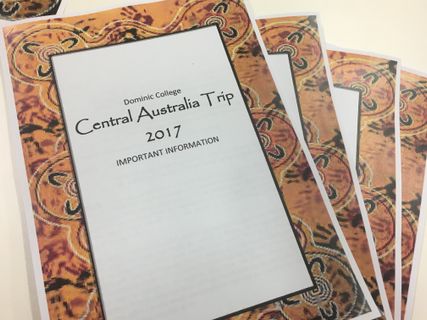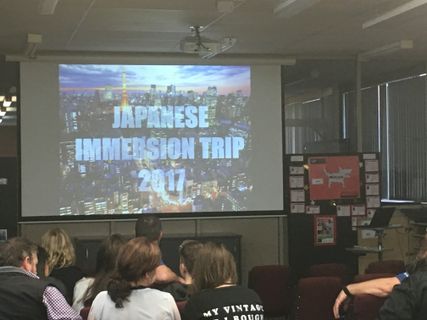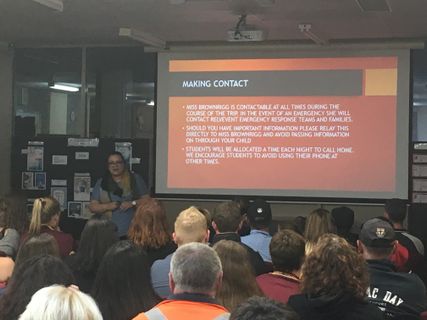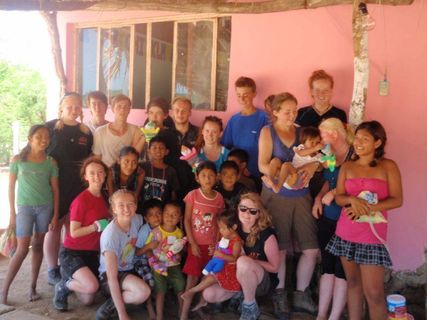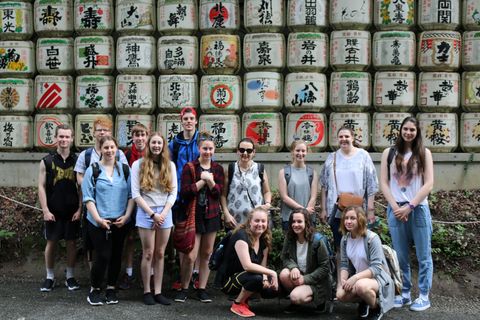Cultural Immersion trips
This week, students, and families of students, who have signed up for our Year 9 Northern Territory and Year 10 Japan experiences, came along to an information night. giving details about the trips and allowing all to ask questions and discuss their expectations of these experiences with the staff who will be travelling with the students.
ÁñÁ«ÊÓƵ»ÆƬ has been offering cultural trips for a number of years. Every trip is a journey of possibilities providing our students a world of travel experiences that immerse them in knowledge, culture, and inspiration. These journeys help students grow by bringing learning to life and making memories to last a lifetime.
There are many benefits gained for students by participating in cultural immersion trips. Research has found students actually retain a great deal of factual information from their tours. Students develop skills in observing and paying attention to detail as they learn about cultural traditions and see sights of historical significance. This in turn develops a stronger ability to think critically.
Benefits of travel
Cultural trips expose students to a diversity of ideas, peoples, places, and time periods. Broadening experience facilitates greater appreciation and understanding by students. Research has also shown these experiences can result in significantly higher measures of historical empathy and tolerance among students.
Historical empathy is the ability to understand and appreciate what life was like for people who lived in a different time and place. This is a central purpose of teaching history, as it provides students with a clearer perspective about their own time and place. This in turn improves their tolerance of other peoples and cultures. The mutual respect and understanding for new cultures that is gained from cultural immersion trips truly can’t be measured.
Travelling to other countries and places can cultivate an interest in students to return to places of cultural significance. This can mean students may enjoy a lifetime of enhanced critical thinking, tolerance, and historical empathy as they continue to learn about and experience other cultures through their life.
Life-long connections
Many students, including our old scholars, attest to enhanced interest, and to developing a strong connection with a culture and may choose to return to study in that country. Some also look for opportunities to work or volunteer in overseas communities and help these societies develop.
True learning can’t be done from a distance. It requires hands-on exploration and travel delivers it! Cultural immersions bring experiences to life in a way impossible in the classroom.
ÁñÁ«ÊÓƵ»ÆƬ immersion opportunities
This year ÁñÁ«ÊÓƵ»ÆƬ staff are dedicating their time to lead some wonderful cultural experiences for our students.
In September we have a group of Year 9 students travelling to the Northern Territory to experience a part of Australia that is very different to Tasmania but holds strong cultural significance for us all.
Also in September a group will be travelling to Japan. Our 2017 group will include some students from the Japanese language class in Year 10 who will be having the opportunity to see first hand the places they have been learning about and will try their hand at using the language skills they have been developing in the classroom.
In December a group of students will be travelling to Cambodia as part of a World Challenge tour where they will be able to make a difference to the life of those in need. These will be undoubtedly life-changing opportunities!
We wish them and our staff the best for their preparations.
Mrs Selina Kinne, Director of Teaching & Learning K-10
 A Catholic School in the Salesian Tradition
A Catholic School in the Salesian Tradition